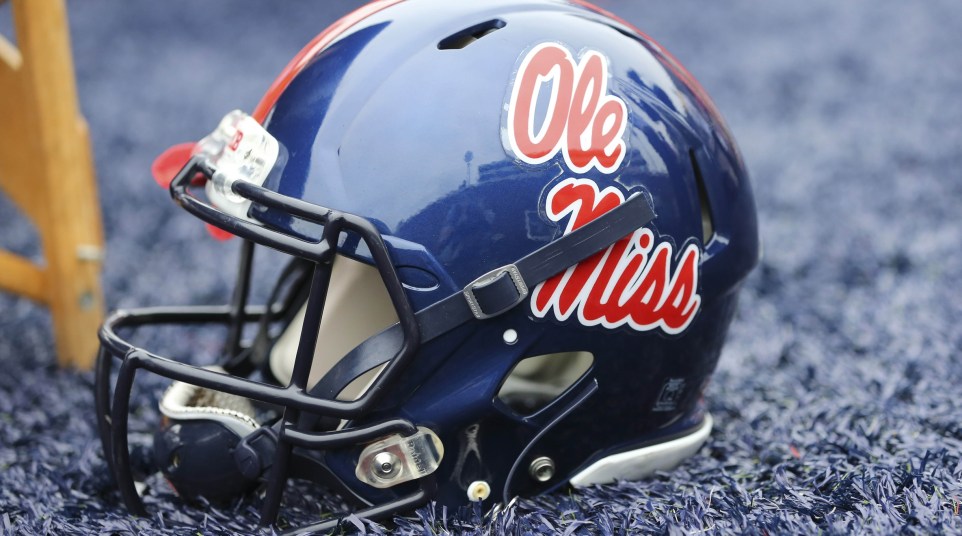
5 Ole Miss records that will never be broken
“Records are meant to be broken” might be the biggest cliché in all of sports. Some records will never be reached again.
For the Ole Miss Rebels, some have to do with the times of the 21st century, some have to do with competition and another one is just crazy. These are the records that figure to be around for a while.
1) Undefeated seasons, 10-0-1 in 1960 and 10-0-0 in 1962
Going undefeated requires a level of attention, work and dumb luck that, barring a move to the Big 12 or American Athletic Conference, the Rebels are never going to experience again. The reason is simple: Mississippi State. The issue has nothing to do with the Egg Bowl and everything to do with recruiting depth. The Rebels lose two- and three-star, in-state talent to the Bulldogs regularly, and while those players don’t typically turn into blue chip talent, they do provide depth on the practice field and in the case of injuries and/or other situations. The 2015 squad boasted the front-end talent that could only be matched by recent regular season undefeateds Alabama, Ohio State and Notre Dame. However, unlike those schools, who replaced their top talent with the next man up (see Derrick Henry, J.T. Barrett, DeShone Kizer), Ole Miss does not quite have next man up ability because those players are wearing maroon.
2) Eli Manning, 47 school records.
Eli Manning was the real deal. In the era of absurd offense and massive ability, consistency still dominates the record books. Even though Bo Wallace and Chad Kelly already sliced through some of the Manning family records, Eli will remain the most prominent statistical name. Wallace had three seasons, Kelly will have two and by all estimates, Patterson will have two or three at the most. At last check, Manning owned 47 school records acquired over four seasons from 2000-03. A good portion of those will continue to fall at the hands of Hugh Freeze offenses, but no one will approach that number of records.
3) Deuce McAllister, 3,060 career rushing yards.
The Hugh Freeze offense that will chip away at Eli’s records will also essentially ensure that no one will ever top McAllister’s career rushing yardage record. Running the football has been such a noticeable issue for the Rebels that QB Chad Kelly could end up being the team’s rushing touchdown leader and most important ball-carrier. With or without Freeze, a four-year running back in college football is rare. The amount of abuse leads to significant injury or at the very least, loss of speed and quickness. Most backs leave for the NFL as soon as they have the stock to do so. With the 21st century trend of college football and the terrifying SEC front sevens, no one will out-rush Deuce.
4) Showboat Boykin, seven rushing touchdowns in a game.
First, what a name. This record has little to do with scheme or competition or talent or recruiting. It is simply a freak event. Seven touchdowns in a game is a mind-blowing and a once-in-a-lifetime situation. Touchdown machines Cam Newton and Tim Tebow did not even reach six in a single game. Furthermore, if someone could tie the record, there’s no way someone breaks the record. Boykin’s seven rushing touchdowns are only one off the all-time FBS record set by Illinois’ Howard Griffith on Sept. 22, 1990.
5) Whatever Chad Kelly and Shea Patterson do.
Fans, analysts and even coaches were often perplexed by Bo Wallace’s rabid inconsistency. Yet Wallace, in a transitional role, become one of Ole Miss’ best quarterbacks ever. After the first year of Chad Kelly, Kelly already toppled Eli’s single-season passing yardage record by more than 400 yards. Many consider Patterson to be among the very best young QB prospects in football. Patterson, like Manziel and Winston, is expected to redshirt his freshman year to take the reins in 2017. Career records are likely not in the cards for Kelly and Patterson due to the likelihood that they will not be around for more than two years each. However, the numbers figure to be massive.
These Ole Miss benchmarks could remain unscathed forever; but remember, no one thought an NBA team would ever win 73 games or that a baseball player could start 2,131 consecutive games.
